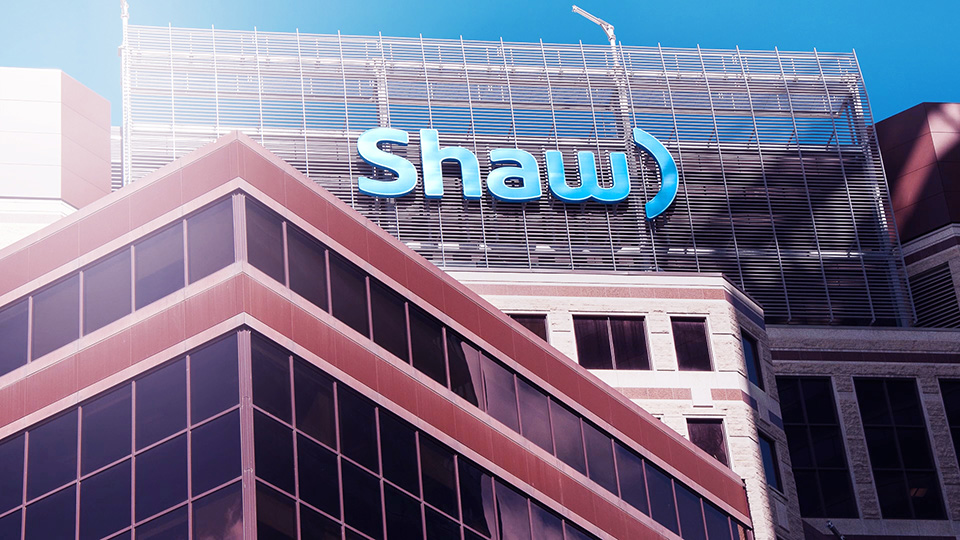Shaw Shares Soar on Rogers Deal, But Still Well Below Sale Price
As Canadian regulators mull deal, some questions remain about competition

The smarter way to stay on top of the multichannel video marketplace. Sign up below.
You are now subscribed
Your newsletter sign-up was successful
Shares of Shaw Communications rose more than 40% on the Toronto Stock Exchange Monday in the wake of its $20 billion purchase by Rogers Communications, but the stock price was still well below Rogers’ offer as questions persist around the deal’s potential impact on wireless competition in Canada.
Shaw shares closed at C$33.85 each on the Toronto Exchange March 15, up 41% or C$9.95 each while Rogers stock rose 3.4% (C$2.02 each) to C$61.57 per share. Both stocks are also traded on the New York Stock Exchange, and saw similar gains. Shaw was up 41% ($7.93) to $27.10 per share on the NYSE, while Rogers increased 3.5% ($1.69) to $49.42 each.
Rogers agreed to purchase Shaw for C$40.50 ($32.40) per share (about $16 billion in total) in cash, a 70% premium to its March 12 close, and the assumption of C$6 billion ($4.8 billion) in debt. The $20 billion deal would create a wireless communications powerhouse with about 13 million customers in Canada.
Both companies also own cable TV operations, but most reports point to possible regulatory concerns on the wireless side of the business. Rogers already is the largest wireless service provider in Canada with about 10.9 million subscribers. Shaw is the fourth largest -- behind BCE and Telus Communications -- with about 2 million wireless customers.
The Canadian government has been sensitive to competitive issues in the wireless market. Last March Prime Minister Justin Trudeau’s minority Liberal government ordered the three largest wireless service providers to slash prices in their middle range plans by 25% within two years or face regulatory action.
As part of the Shaw deal, Rogers pledged not to raise prices for Shaw’s mid-range Freedom Mobile plan for three years after the deal closes. It also said it would invest about C$2.5 billion over five years to speed up construction and deployment of 5G networks.
The smarter way to stay on top of the multichannel video marketplace. Sign up below.
On a conference call with analysts to discuss the transaction, Rogers CEO Joseph Natale said it was “too early” to determine whether there would be regulatory issues, but that he was confident the deal would win approval.
The transaction will be examined by at least three Canadian government agencies -- the independent Competition Bureau of Canada, the Canadian Radio-television and Telecommunications Commission, and the department of Innovation, Science and Economic Development.
“We have been clear that greater affordability, competition and innovation in Canadian telecommunications are as important to us as a government as they are to Canadians concerned about their cell phone bills,” ISED minister of Innovation, Science and Industry Francois-Philippe Champagne said in a statement. “These goals will be front and centre in analyzing the implications of today’s news. This transaction will be reviewed by the independent Competition Bureau of Canada, the CRTC, as well as ISED and we won’t presuppose the outcomes of these processes.”
In a blog post, Morningstar Research wrote that while there may be reasons regulators would want to nix the deal, it didn't see a strong reason to block it.
“Most importantly, the companies are not major competitors -- 80% of Shaw’s revenue and 90% of its EBITDA come from its wireline business, which has essentially no overlap with that of Rogers,” Morningstar wrote. “In wireless, we estimate Shaw has only 4%-5% national market share, leaving it a minor player based on that metric.”
But the deal would remove the fourth largest player from the Canadian wireless market, which could cause some regulators concerns.
“Regulatory actions and rules of spectrum auctions indicate regulators prefer four national wireless competitors, and Shaw has made major strides in recent years to position itself as the fourth,” Morningstar wrote. “Although Shaw’s wireless business remains relatively tiny, it has shaken up the industry. Most notably, we think it is responsible for moving each of the major companies to offer unlimited data plans and keep pricing down with its consumer-friendly and innovative deals.”
That dilemma could be solved in any number of ways, including requiring the company to divest of some assets, similar to what the Competition Bureau required BCE to do when it bought Manitoba Telecom Services in 2017.
Mike Farrell is senior content producer, finance for Multichannel News/B+C, covering finance, operations and M&A at cable operators and networks across the industry. He joined Multichannel News in September 1998 and has written about major deals and top players in the business ever since. He also writes the On The Money blog, offering deeper dives into a wide variety of topics including, retransmission consent, regional sports networks,and streaming video. In 2015 he won the Jesse H. Neal Award for Best Profile, an in-depth look at the Syfy Network’s Sharknado franchise and its impact on the industry.

